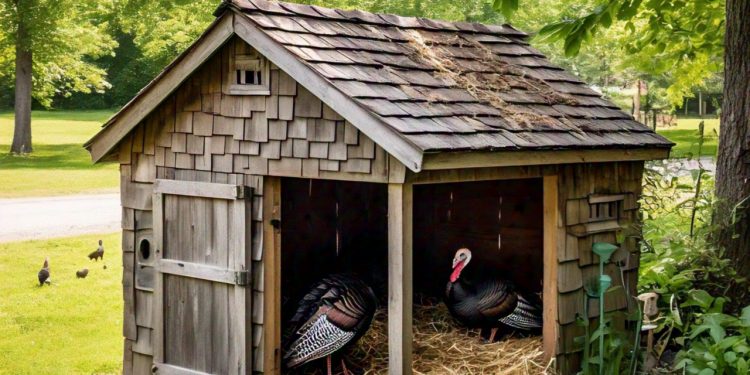Why Start Turkey Farming in Your Backyard?
Backyard turkey farming offers numerous benefits:
- Fresh and Nutritious Meat: Home-raised turkeys provide high-quality, organic meat free from additives.
- Low Maintenance: Compared to large-scale farming, backyard setups require minimal space and resources.
- Economic Potential: Turkeys are in demand, especially during holidays, offering an excellent opportunity for side income.
- Sustainability: Raising your own turkeys reduces your reliance on commercially processed poultry.
1. Choose the Right Turkey Breed for Your Backyard
Selecting a breed that suits your goals and backyard setup is critical.
- Broad Breasted White: Ideal for meat production due to their fast growth and large size.
- Heritage Breeds: Include Bourbon Red, Narragansett, and Blue Slate. These are hardy, slow-growing, and capable of natural reproduction.
- Dual-Purpose Breeds: Perfect for small-scale farmers who want eggs and meat.
2. Space and Housing Requirements
Turkeys need more space than chickens, making proper housing essential.
- Space Per Bird: Adult turkeys require about 10-12 square feet each.
- Outdoor Access: Provide a secure free-range area where they can roam and forage.
- Shelter Features:
- Protection from predators with secure fencing.
- Good ventilation to prevent respiratory issues.
- Elevated roosting bars as turkeys prefer sleeping off the ground.
- Cleanliness: Regularly clean housing to reduce the risk of disease.
3. Feeding and Nutrition
A proper diet ensures your turkeys grow healthy and strong.
- Starter Feed: High-protein (28-30%) feed for poults up to 8 weeks old.
- Grower Feed: 20-24% protein feed from 8 weeks to market age.
- Natural Foraging: Allow access to grass, insects, and seeds to supplement their diet.
- Grit and Calcium: Add grit to aid digestion and crushed oyster shells for laying hens.
- Fresh Water: Clean water must be available at all times to prevent dehydration and illness.
4. Caring for Turkey Poults
Poults are delicate and require special care during their first weeks of life.
- Brooder Setup: Maintain a brooder temperature of 95°F during the first week, reducing by 5°F weekly.
- Heat Source: Use heat lamps to keep poults warm.
- Feeding and Hydration: Ensure constant access to feed and water, and teach poults where to find them.
- Observation: Monitor poults for signs of distress, such as crowding near the heat source or lethargy.
5. Disease Prevention and Health Management
Healthy turkeys grow faster and yield better results, making health management a top priority.
- Vaccinations: Protect against diseases like Newcastle Disease and fowl pox.
- Biosecurity: Limit visitors to your backyard farm and disinfect tools to prevent disease transmission.
- Common Issues:
- Blackhead Disease: A parasitic infection that affects turkeys more than chickens.
- Respiratory Issues: Often caused by poor ventilation or damp housing.
- Veterinary Support: Establish contact with a poultry veterinarian for timely advice and interventions.
6. Breeding or Buying Poults
Decide whether to breed turkeys or buy poults annually.
- Breeding: Heritage breeds are suitable for natural reproduction. Ensure you have at least one tom (male turkey) for every 8-10 hens.
- Purchasing Poults: If you prefer not to breed, buy poults from reputable hatcheries to ensure quality and disease-free birds.
7. Seasonal Considerations
Turkey farming is often seasonal, especially if you plan to sell during holidays.
- Timing: Start raising poults in late spring to have mature turkeys ready for Thanksgiving or Christmas.
- Marketing: Use social media, local markets, and word-of-mouth to sell turkeys to your community.
8. Manage Predators and Pests
Backyard setups are prone to predators like foxes, raccoons, and hawks.
- Secure Fencing: Use sturdy fencing with buried edges to keep predators out.
- Nighttime Safety: Lock turkeys in their shelter at night.
- Pest Control: Regularly clean feeding areas to prevent attracting rodents.
9. Recordkeeping for Efficiency
Keeping records helps you track the progress of your turkey farming project.
- Growth Records: Monitor weight and health of individual turkeys.
- Feeding Costs: Track feed consumption and expenses.
- Sales and Income: Maintain records of customers and earnings during the season.
10. Start Small and Scale Gradually
As a beginner, it’s wise to start with a small flock to learn the ropes.
- Flock Size: Start with 5-10 poults, depending on your space and resources.
- Experiment: Try different breeds or feeding practices to identify what works best.
- Expand: Once you gain experience, gradually increase your flock size to meet market demands.
Conclusion
Starting a small-scale turkey farming business in your backyard can be both enjoyable and profitable. By understanding their needs, providing proper care, and staying consistent, you can raise healthy turkeys for personal consumption or sale. Use this beginner’s guide as a roadmap to establish your backyard turkey farm and enjoy the satisfaction of producing your own high-quality poultry.

























